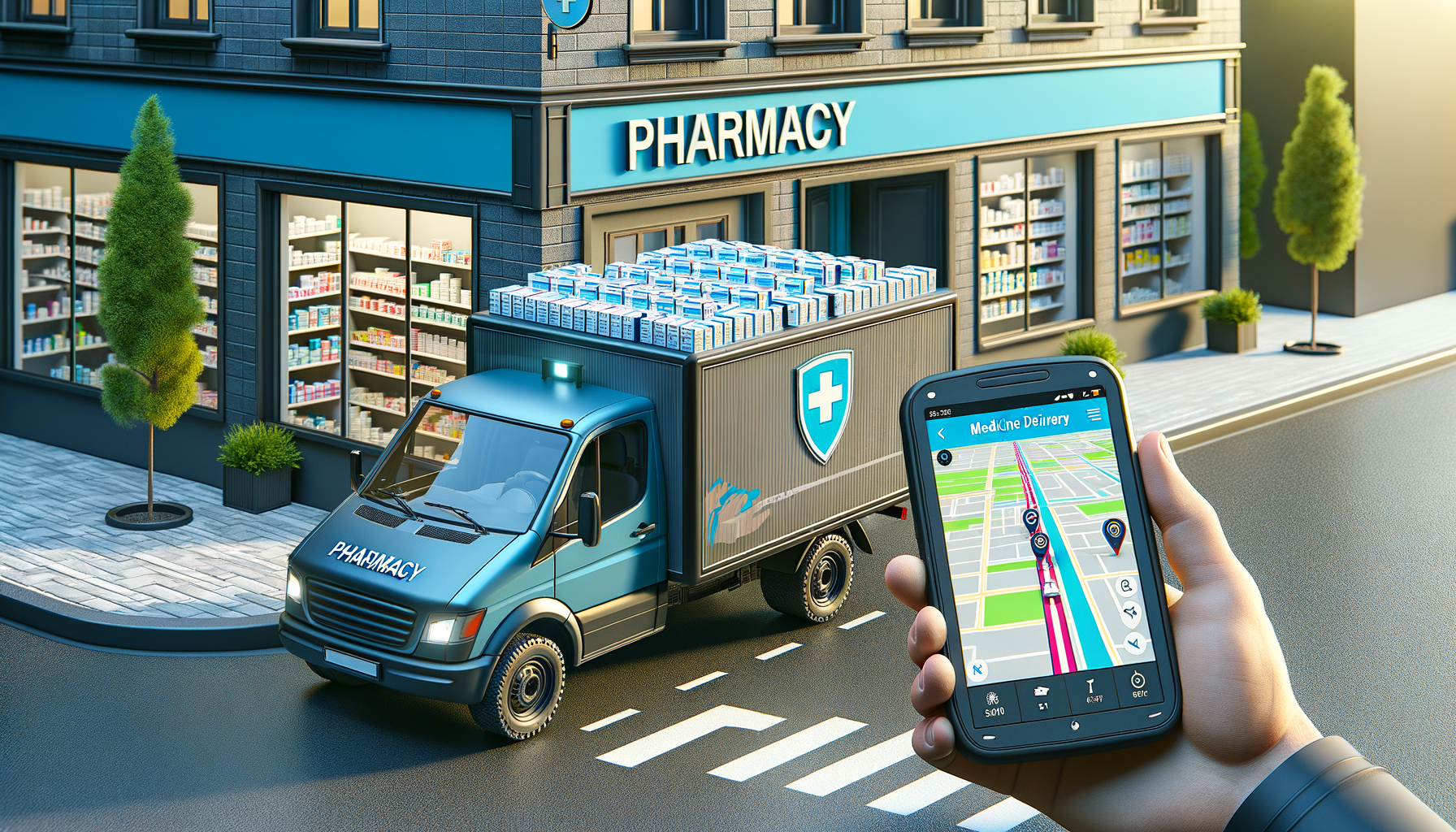
How to Become a Medicine Delivery Driver
The Role and Responsibilities of a Medicine Delivery Driver
Medicine delivery drivers play a crucial role in the healthcare system by ensuring that medications are delivered safely and efficiently to patients. This job involves more than just transporting prescriptions; it requires a deep understanding of patient confidentiality, safety protocols, and time management. Drivers often work with pharmacies, hospitals, or courier services, and their primary responsibility is to deliver medications on time while maintaining the integrity of the drugs.
The responsibilities of a medicine delivery driver include:
- Ensuring timely delivery of medications to patients’ homes or healthcare facilities.
- Maintaining accurate records of deliveries and obtaining signatures for proof of delivery.
- Handling medications with care to prevent damage or contamination.
- Following all safety and health regulations, including those related to COVID-19.
- Communicating effectively with pharmacy staff and patients to resolve any delivery issues.
In addition to these tasks, drivers must be familiar with the local area to optimize delivery routes and minimize delays. This role requires strong organizational skills and the ability to work independently, often under tight deadlines.
Qualifications and Skills Required
Becoming a medicine delivery driver requires a specific set of qualifications and skills. While the educational requirements are typically minimal, most employers prefer candidates with a high school diploma or equivalent. More importantly, drivers must have a valid driver’s license and a clean driving record, as safety is a top priority in this role.
Key skills for a medicine delivery driver include:
- Strong communication skills to interact with patients and healthcare providers.
- Attention to detail to ensure accurate delivery records and adherence to safety protocols.
- Time management skills to meet delivery schedules and optimize routes.
- Basic knowledge of vehicle maintenance to ensure the delivery vehicle is in good working condition.
- Empathy and patience when dealing with patients who may be experiencing health issues.
Some employers may also require drivers to undergo background checks and drug testing, given the sensitive nature of the job. Additionally, familiarity with GPS systems and mobile delivery apps can be beneficial in this role.
Challenges and Rewards of the Job
Like any job, being a medicine delivery driver comes with its own set of challenges and rewards. One of the main challenges is managing time effectively, especially when dealing with traffic or unexpected delays. Drivers must also be prepared to handle difficult weather conditions, which can impact delivery times and safety.
Another challenge is maintaining the confidentiality and security of the medications being transported. Drivers must adhere to strict protocols to ensure that prescriptions are not tampered with or stolen during transit.
Despite these challenges, the role of a medicine delivery driver is highly rewarding. Drivers play a vital part in the healthcare system, ensuring that patients receive their medications on time, which can significantly impact their health and well-being. The job also offers a sense of independence and autonomy, as drivers often work alone and manage their own schedules.
Moreover, the demand for medicine delivery drivers is increasing, offering job security and opportunities for growth within the industry. Drivers who excel in their roles may have the chance to advance to supervisory positions or transition into other areas of healthcare logistics.
Safety and Compliance in Medicine Delivery
Safety and compliance are critical aspects of the medicine delivery driver’s role. Given the nature of the items being transported, drivers must be vigilant in following all relevant regulations and guidelines. This includes adhering to the Health Insurance Portability and Accountability Act (HIPAA) to protect patient privacy and ensuring that medications are delivered to the correct recipients.
Compliance also involves following proper procedures for handling and transporting medications. This means keeping drugs at the appropriate temperature, securing them during transit, and checking expiration dates before delivery. Drivers must be trained to recognize and respond to any issues that may arise, such as damaged packaging or incorrect prescriptions.
Additionally, drivers must be aware of any hazardous materials they may be transporting and follow the necessary precautions to prevent accidents or spills. This includes wearing personal protective equipment (PPE) when required and reporting any incidents to their supervisors immediately.
By prioritizing safety and compliance, medicine delivery drivers help maintain the integrity of the healthcare system and ensure that patients receive their medications safely and securely.
Future Prospects and Opportunities
The future for medicine delivery drivers looks promising, with the healthcare industry continuing to grow and evolve. As more patients opt for the convenience of home delivery, the demand for skilled drivers is expected to rise. This trend is further driven by the increasing use of telemedicine and the growing aging population, who often require regular medication deliveries.
For those interested in pursuing a career as a medicine delivery driver, there are several opportunities for advancement. Drivers can gain experience and move into supervisory roles, overseeing a team of drivers or managing logistics for a healthcare facility. Additionally, the skills acquired in this role, such as time management, communication, and problem-solving, are transferable to other positions within the healthcare and logistics sectors.
Furthermore, as technology continues to advance, drivers may have the opportunity to work with innovative delivery solutions, such as drones or autonomous vehicles, which could revolutionize the industry. Staying informed about these developments and adapting to new technologies will be essential for drivers looking to stay competitive in the field.
Overall, a career as a medicine delivery driver offers stability, growth potential, and the satisfaction of contributing to patient care, making it an appealing option for those interested in the healthcare industry.


